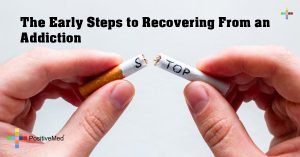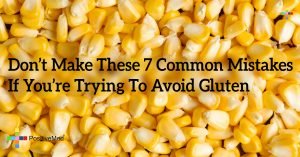Giving birth without the process bearing some effect on your body is highly unlikely. Especially after childbirth, your honeypot goes through one of the most stressful natural experiences endured by any organ in your body.
It’s not just childbirth, but pregnancy and the associated hormones that take control of your whole body. You are bound to notice some consequences since your body is basically transitioning from pre-baby status to post-baby. Although it can be a regular issue for some women, the dryness of your honeypot is something men can never understand. Dryness can also be a serious concern since it can keep you from enjoying physical affections.

As primary hormones, progesterone and estrogen play a significant role during pregnancy. In women, these two are also responsible for periods. The levels of these hormones shoot through the roof when you are pregnant. However, your hormonal levels can drop in less than 24 hours postpartum, which means after childbirth. Additionally, estrogen levels are bound to fall even further if you are breastfeeding.
RELATED ARTICLE: Normal Delivery Vs C Section: Danger and Benefits
You might be wondering what estrogen has to do with the dryness of your honeypot. By increasing the lubrication and flow of blood to your girly parts, estrogen plays a major role in arousal. In women, symptoms of low estrogen levels include night sweats, hot flashes, and dryness of the honeypot.
Your thyroid and lady part dryness
Postpartum thyroiditis is another common cause of lady part dryness, particularly when the thyroid gets inflamed after childbirth. Inflammation of your thyroid leads to the overproduction or underproduction of its natural hormones. Although thyroiditis is not nearly as common as low levels of estrogen, it could be a contributory factor to honeypot dryness. As such, looking into it is important, especially if this relates to you.
READ ALSO: Get Rid of That Fishy Odor in Your Labia
Some symptoms of postpartum thyroiditis are:
• Dryness of your lady parts
• Weight gain
• Irritability
• Depression
Some changes will occur if you stretch your honeypot to its limit like it usually happens during childbirth. Your private part will most likely become thinner than it was before and more prone to injury. As a result, getting it on will often cause irritability such as burning, itching, and even bleeding. Although your honeypot is bound to change a lot as you go through pregnancy, it can still regain its former characteristics. If you are lucky enough, your lady flower will return to its normal state once you stop breastfeeding. Knowing what to do might prove challenging when faced with such an issue.
Natural remedies for the dryness of your lady parts
Several alternatives to estrogen therapy exist today, most of which work very well and are worth trying. When it comes to managing honeypot dryness, your diet is the most likely place to start. A majority of the lubricating fluid comes from the blood stream. Ensuring you stay hydrated and eating a healthy diet rich in proteins and omega-3 fatty acids is, therefore, critical.
Fatty acids might help to boost the production of lubrication. Sesame seeds, raw pumpkin, sunflower seeds, and fish, particularly tuna, salmon, and mackerel, are excellent sources of fatty acids. Isoflavones might also play a significant role in the regulation of your declining estrogen levels. As such, eating flaxseed, legumes, soy, cherries, apples, nuts, and celery is also advisable since they contain high amounts of isoflavones.
As reported by many women, black cohosh also helps to relieve symptoms of menopause, which includes dryness down there. Unfortunately, no clinical studies showing its effectiveness exist at the moment. Although it lacks supporting scientific evidence, wild yam is another natural ingredient that promises to relieve honeypot dryness.
Conclusion
It is true that poor diets and hydration impact the secretions, blood flow, and lubricity of your honeypot. You might be thinking it will always be hard for you to enjoy physical relations due to your dryness. However, a solution exists and all it might take is proper dieting and hydration.








